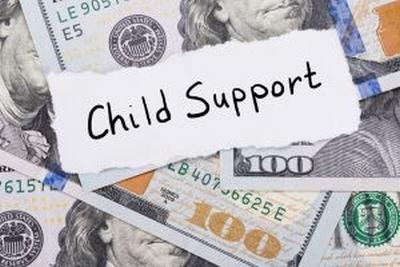Recent Blog Posts
What Is a Collaborative Divorce?
 To be granted a divorce in Illinois, you and your spouse must decide how to resolve issues like property division, spousal maintenance, child support, and child custody. If you are unable to reach a settlement, your divorce case will go to trial. During divorce litigation, spouses and their respective attorneys present arguments and evidence to the judge. The judge then makes a decision about the unresolved issues on the parties’ behalf. Collaborative divorce, or using collaborative law to settle a divorce, is a relatively new form of alternative dispute resolution. Through collaborative law, you may be able to resolve divorce issues without taking your divorce to trial.
To be granted a divorce in Illinois, you and your spouse must decide how to resolve issues like property division, spousal maintenance, child support, and child custody. If you are unable to reach a settlement, your divorce case will go to trial. During divorce litigation, spouses and their respective attorneys present arguments and evidence to the judge. The judge then makes a decision about the unresolved issues on the parties’ behalf. Collaborative divorce, or using collaborative law to settle a divorce, is a relatively new form of alternative dispute resolution. Through collaborative law, you may be able to resolve divorce issues without taking your divorce to trial.
How Can Collaborative Law Help Me Resolve Divorce Issues?
Protecting Your Assets During Divorce with a Financial Restraining Order
 You have worked hard for the assets you own, so it is understandable that you would want to protect those assets from being misused or wasted. Protecting property during divorce is something that many spouses do not think about until it is too late. Although remedies are available for spouses who have suffered financial harm due to the other spouse’s financial recklessness during divorce, preventing wasteful spending is a better strategy than mitigating it after the fact. One way to protect funds and other property during divorce is to get a financial restraining order.
You have worked hard for the assets you own, so it is understandable that you would want to protect those assets from being misused or wasted. Protecting property during divorce is something that many spouses do not think about until it is too late. Although remedies are available for spouses who have suffered financial harm due to the other spouse’s financial recklessness during divorce, preventing wasteful spending is a better strategy than mitigating it after the fact. One way to protect funds and other property during divorce is to get a financial restraining order.
Stop Wasteful Spending or Intentional Destruction of Property
As most divorced people can tell you, the process of ending a marriage can sometimes bring out the worst side of people. If you are getting divorced, you may have concerns about your spouse’s financial decisions. You may be worried that he or she will carelessly spend money, sell property to finance an addiction, or otherwise make ill-informed financial decisions. You may even worry that your spouse will destroy your property or intentionally waste money to “get back at you.” A financial restraining order can help prevent this from happening.
What Is Retroactive Child Support, and When Is it Awarded in Illinois?
 When you are a parent who is unmarried or divorced, it can be difficult or nearly impossible to make ends meet without financial assistance from your child’s other parent. Child support is a crucial resource for parents in Illinois and across the United States. Typically, child support is established when a child is born to unmarried parents or when married parents get divorced. However, the time between a parent seeking child support and that parent actually receiving support can be weeks, months, or even years. Fortunately, there are some cases in which child support is awarded retroactively.
When you are a parent who is unmarried or divorced, it can be difficult or nearly impossible to make ends meet without financial assistance from your child’s other parent. Child support is a crucial resource for parents in Illinois and across the United States. Typically, child support is established when a child is born to unmarried parents or when married parents get divorced. However, the time between a parent seeking child support and that parent actually receiving support can be weeks, months, or even years. Fortunately, there are some cases in which child support is awarded retroactively.
Receiving Back Child Support in Illinois
There are many different situations in which a parent may be awarded retroactive child support. This means that they receive support for the time period before the establishment of the child support order. To receive child support in Illinois, an unmarried parent requesting support will need to establish the paternity of the child and file a petition for support. Establishing paternity may require the parent to file an administrative order via the Illinois Department of Healthcare and Family Services or secure an Order of Paternity with the court. An unmarried parent may be entitled to child support dating back to when the child’s father was first served with paternity paperwork. Married parents may be able to receive back child support from the date they filed a motion requesting child support.
Which Spouse Gains Ownership of the Family Pet in an Illinois Divorce?
 For many people, pets are more than property, they are part of the family. However, pet ownership falls under the umbrella of property division during divorce. The division of marital assets and debts is often one of the most consequential aspects of the divorce process. Divorcing couples often disagree about the value of property and debt and who should keep certain properties. If you have dogs, cats, horses, birds, or other pets, you may have questions about how pet ownership is decided in an Illinois divorce.
For many people, pets are more than property, they are part of the family. However, pet ownership falls under the umbrella of property division during divorce. The division of marital assets and debts is often one of the most consequential aspects of the divorce process. Divorcing couples often disagree about the value of property and debt and who should keep certain properties. If you have dogs, cats, horses, birds, or other pets, you may have questions about how pet ownership is decided in an Illinois divorce.
Negotiating an Agreement With Your Spouse
Divorcing couples may be able to reach their own agreement about how to allocate pets and other property without taking their case to court. Although it can be very difficult to reach an agreement with a soon-to-be-ex-spouse, it is possible. Many couples eventually reach a settlement about how to divide property through attorney-led negotiations. Others turn to mediation or collaborative law. Often, one spouse retains ownership of pets while the other spouse is assigned an equitable share of different marital assets. Other times, couples choose to share ownership of pets similarly to how parents share custody of children.
What Types of Protective Orders Are Available in Illinois?
 Domestic violence and intimate partner abuse are not uncommon in the United States. Unfortunately, some evidence suggests that lockdowns intended to slow the spread of COVID-19 may be leading to an increase in domestic violence. Experts say that isolation brought on by the lockdowns can increase the chances of physical, emotional, mental, sexual, or financial abuse between romantic partners. If you have been a victim of domestic violence or abuse in Illinois, you should know that there are legal tools at your disposal that may help you get out of the abusive situation.
Domestic violence and intimate partner abuse are not uncommon in the United States. Unfortunately, some evidence suggests that lockdowns intended to slow the spread of COVID-19 may be leading to an increase in domestic violence. Experts say that isolation brought on by the lockdowns can increase the chances of physical, emotional, mental, sexual, or financial abuse between romantic partners. If you have been a victim of domestic violence or abuse in Illinois, you should know that there are legal tools at your disposal that may help you get out of the abusive situation.
Emergency Order of Protection
In Illinois, an Emergency Order of Protection (EOP) may help a victim of domestic violence leave an abusive situation. The EOP can be obtained at the petitioners local courthouse. This protective order is intended to provide immediate legal protection to a victim of abuse, stalking, or threats of violence. You may obtain an EOP without personally notifying the individual from whom you are seeking protection. The EOP may contain several different provisions depending on the petitioner’s needs. The EOP may:
Should I Settle Or Take My Illinois Divorce Case to Trial?
 Ending a marriage is much more legally complex than many people realize. Getting a divorce is not as simple as dissolving the legal marital relationship and moving on. Divorcing spouses must also decide how to divide their property and debt, allocate the custody of children, and resolve several other issues. Many couples are able to reach an agreement about the terms of their divorce without court intervention. However, others end up going to trial. If you are planning to divorce, you may have questions about the difference between out-of-court settlements and divorce litigation, and wonder if there are ever circumstances in which it makes sense to take a divorce case to trial.
Ending a marriage is much more legally complex than many people realize. Getting a divorce is not as simple as dissolving the legal marital relationship and moving on. Divorcing spouses must also decide how to divide their property and debt, allocate the custody of children, and resolve several other issues. Many couples are able to reach an agreement about the terms of their divorce without court intervention. However, others end up going to trial. If you are planning to divorce, you may have questions about the difference between out-of-court settlements and divorce litigation, and wonder if there are ever circumstances in which it makes sense to take a divorce case to trial.
Reaching an Agreement Out of Court
How Can My Mental Illness Affect Child Custody in Illinois?
 When unmarried parents have a child together or married parents get divorced, a decision must be made about how to divide parental responsibilities and parenting time. Many parents choose to co-parent their children—the child spends time at both homes and the parents share responsibility for making major decisions about their child. In other cases, one parent is responsible for all or nearly all of the parental responsibilities and parenting time. There are countless issues that can influence child custody decisions. One concern that many parents have is whether or not their mental illness will impact these custody determinations.
When unmarried parents have a child together or married parents get divorced, a decision must be made about how to divide parental responsibilities and parenting time. Many parents choose to co-parent their children—the child spends time at both homes and the parents share responsibility for making major decisions about their child. In other cases, one parent is responsible for all or nearly all of the parental responsibilities and parenting time. There are countless issues that can influence child custody decisions. One concern that many parents have is whether or not their mental illness will impact these custody determinations.
Will I Be Denied Parenting Time Because of My Mental Illness?
Whether you suffer from depression, anxiety, schizophrenia, or another type of mental illness, you are not alone. Just under 20 percent of the U.S. adult population has at least one mental illness. A mental health diagnosis alone cannot prevent you from spending time with your child. However, there are many different ways that a mental illness can impact child custody determinations.
What is Supervised Parenting Time and When is it Required in Illinois?
 In Illinois, child custody is broken down into two main components: parental responsibilities and parenting time. Formerly known as visitation, parenting time refers to the time a parent spends directly caring for his or her child. Illinois courts make all child custody decisions based on the child’s best interests. In some cases, the court may decide that supervised parenting time is necessary to ensure the safety of the child.
In Illinois, child custody is broken down into two main components: parental responsibilities and parenting time. Formerly known as visitation, parenting time refers to the time a parent spends directly caring for his or her child. Illinois courts make all child custody decisions based on the child’s best interests. In some cases, the court may decide that supervised parenting time is necessary to ensure the safety of the child.
When is Supervised Visitation Required?
Supervised visits may be ordered anytime that there is concern about a parent’s ability to adequately care for a child and ensure the child’s safety. Often, supervised visitation is required because the parent has been accused of domestic violence or abuse. This abuse may have been directed at the child, the other parent, or another party. Supervised visitation may also be required if a parent has a severe mental illness, substance abuse problem, or addiction that could endanger the child. The court may also require supervised visits if the parent has previously neglected the child or there is a concern that the parent could attempt to kidnap the child.
Using Collaborative Law for Illinois Child Custody Disputes
 Divorcing parents are expected to create a “parenting plan” that addresses how they plan to allocate child-related responsibilities within 120 days of filing for divorce. However, many couples struggle to reach an agreement about the numerous issues addressed in a parenting plan. Because most parents have strong opinions about what is best for their children, disagreements about child custody concerns during divorce can quickly become contentious. If you and your spouse do not see eye-to-eye about child custody concerns, one option that may help you reach an agreement is collaborative law.
Divorcing parents are expected to create a “parenting plan” that addresses how they plan to allocate child-related responsibilities within 120 days of filing for divorce. However, many couples struggle to reach an agreement about the numerous issues addressed in a parenting plan. Because most parents have strong opinions about what is best for their children, disagreements about child custody concerns during divorce can quickly become contentious. If you and your spouse do not see eye-to-eye about child custody concerns, one option that may help you reach an agreement is collaborative law.
What is the Collaborative Law Process for Family Law Issues?
Family law deals with issues such as divorce, the allocation of parental responsibilities and parenting time, and child support. One alternative resolution method that may help individuals settle family law issues without taking the case to trial is collaborative law or collaborative divorce. The collaborative law process involves the parties and their respective attorneys meeting together to negotiate the unresolved issues, find common ground, and explore potential solutions. The end goal of the collaborative process is to reach a mutually-agreeable decision about the issue at hand.
How Can a Dissipation Claim Help Me Recover Wasted Assets?
Property division is often one of the most consequential aspects of divorce – especially for high-net-worth individuals. Some divorcing spouses reduce the value of the marital estate through excessive or careless spending or even intentionally destroying assets. This is referred to as the “dissipation of assets.” When a spouse spends money or property on a purpose not related to the marriage immediately prior to divorce, the other spouse may be entitled to compensation for the dissipated assets. Through a dissipation claim, you may be able to recover the value of assets your soon-to-be ex-spouse spent on extravagant vacations, gifts, or other unnecessary purchases.
Illinois Law Regarding Dissipation of Assets
The Illinois Marriage and Dissolution of Marriage Act (IMDMA) contains a provision defining dissipation and addressing how wasted or destroyed assets should be handled in a divorce. Dissipative spending is excessive spending that does not benefit the marriage in any way. So, spending money on groceries, home repairs, or other necessary, reasonable expenses would not qualify as dissipation. Examples of dissipation may include:












 630-352-2240
630-352-2240



